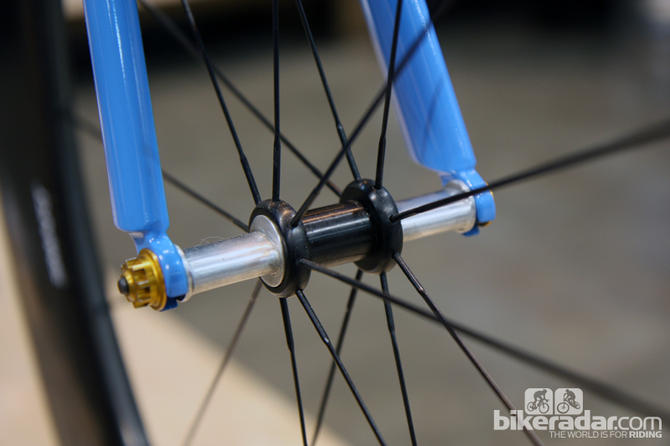Wheel vocabulary is a challenging thing. The number one thing that people request in wheels is stiffness, of which there are basically three elements - torsional, radial, and lateral. Coming in almost tied with stiffness is the request for light wheels, and then durable, low maintenance, tubeless, all black, etc. The incidence of "how few spokes can I get away with" (always phrased that way) seems to be in decline.
Torsional stiffness is a wheel's ability to resist deformation from drive train torque. It would take a really bad wheel to have notably poor torsional stiffness. Radial stiffness is your wheel's ability to resist deformation when the spokes face an inward load. People fear too much radial stiffness because they don't want a harsh ride, but a wheel that deformed by 1mm - which is a HUGE amount for a wheel to deform, as the tightest of spokes would go dead slack with 1mm of deformation - doesn't offer anything like the suspension offered by tires. If your wheels feel harsh, we think the tires are the first place to look. Letting 5 or 8psi out can transform a bike. This whole phenomenon is why we got on the wide tires train a long time ago, and then went deep into wider rims right away.
Lateral stiffness is really two issues. A stiff rim in an underspoked build will stay in plane, but will move off axis relative to the hub. Most "my rear wheel rubs my brake pads" issues are this. A soft rim without enough spokes will come out of plane at the rim, which doesn't evidence itself with brake pad rub, but they'll feel mushy, handle poorly in turns, have poor durability, and other things. Neither is a good situation. This article does a great job with it if you want to go deeper.
 English Cycles narrow TT front hub, photo by Bikeradar.com
English Cycles narrow TT front hub, photo by Bikeradar.com
Recommending a particular build for a particular use has to take in a lot of elements. Rider weight is often the flagship variable, but how a rider rides is at least as significant. If you stand and hammer up every little incline, you place more demands on your wheels than a heavier rider who sits and pedals smoothly. Time trial and endurance event track riders can use front hubs with really close flange placement, which reduce frontal areaand improve aerodynamics. Ride that hub in a crit, though, and you're just not going to make the turns - you'd have crazy understeer. Durability is increased by increasing spoke count, but one size doesn't fit all - for some riders a 20/24 build can be super durable, depending on the components and how they ride. Redundancy is always increased with more spokes - if a spoke breaks in a 32 spoke wheel, your wheel might not even come out of true very noticeably, and that's nice for touring or heavy training in crappy weather or remote locales.
One of the more interesting questions we've been asked recently is why we offer 24/24 and 28/28 in disc, but not in rim brake builds. We didn't know that people didn't know that. The simple answer is that a disc front wheel is dished (the hub flanges are not equidistant from the hub's center), and it transmits torque from hub to rim (because the brakes stop the hub, not the rim). The dish makes the wheel less strong and stable, spoke for spoke, than a rim brake front, while the brake torque transmittal increases the need for strength in the wheel. In a rim brake build, if your front and rear have the same number of spokes, either your front is overbuilt or your rear is underbuilt. In a disc build that's not the case.
The point here is that no single element exists in isolation; two riders of the same weight could be best off with the exact same build or very different builds, depending on the other criteria. Next we'll look more into spoke type and strength, and balancing spoke, rim, and hub characteristics.

1 comment
This is just more good information from people who actually think about what they're doing and want no part of the "race to the bottom" when it comes to low spoke numbers, just for the sake of low spoke numbers. While I've always been a fan of "within reason, more spokes are better than less spokes" I've never seen the term "redundancy" in relation to wheels and their integrity before. Respect.